
Opus
Scope & Guideline
Connecting Scholars Through Open Access
Introduction
Aims and Scopes
- Ethnomusicology and Cultural Studies:
The journal emphasizes ethnomusicological research, focusing on the cultural practices, traditions, and identities associated with music in Brazil and beyond. - Music Education and Pedagogy:
There is a strong focus on music education, exploring pedagogical strategies, curriculum development, and the training of music educators, particularly within Brazilian contexts. - Interdisciplinary Approaches:
'Opus' encourages interdisciplinary research that connects music with other fields such as sociology, psychology, and cultural studies, aiming to broaden the understanding of music's role in society. - Historical and Analytical Perspectives:
The journal publishes studies that analyze historical trajectories of music, examining composers, genres, and performance practices, particularly in relation to Brazilian music. - Popular and Folk Music Studies:
Research related to popular and folk music traditions in Brazil is a consistent theme, highlighting their evolution, significance, and cultural implications.
Trending and Emerging
- Music and Social Justice:
There is a rising interest in exploring music's role in social justice movements and its potential for fostering inclusivity and diversity within educational and performance contexts. - Digital and Remote Music Education:
The impact of digital technologies and remote learning on music education practices has become a significant area of exploration, particularly following the challenges posed by the COVID-19 pandemic. - Gender and Music Studies:
Research examining the contributions of gender perspectives to music history and practice is increasingly prominent, reflecting a broader societal focus on gender equality and representation. - Music and Mental Health:
A growing body of work is focusing on the connections between music, mental health, and well-being, highlighting the therapeutic potential of music in various contexts. - Interdisciplinary Collaborations:
There is an emerging trend of interdisciplinary research that combines music with other fields such as psychology, sociology, and anthropology, expanding the scope of music studies.
Declining or Waning
- Classical Music Criticism:
There has been a noticeable decrease in publications centered around classical music criticism, suggesting a shift towards more contemporary and culturally relevant discussions. - Traditional Musicology:
Research that strictly adheres to traditional musicological methods, such as purely formal analyses of Western classical music, seems to be less frequent, indicating a move towards more integrative and contextual approaches. - Historical Biographies of Composers:
Papers focused solely on the biographies of classical composers without a broader cultural or historical context are appearing less often, reflecting a trend towards examining music within its socio-political frameworks.
Similar Journals
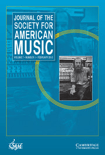
Journal of the Society for American Music
Diving Deep into the Heartbeat of American SoundThe Journal of the Society for American Music is a leading academic journal dedicated to the study of American music and its diverse cultural contexts. Published by Cambridge University Press, this journal serves as a vital platform for researchers and professionals in the fields of musicology, ethnomusicology, and American studies, contributing significantly to scholarly discourse and advancing knowledge in these areas. With an impressive impact factor reflecting its academic rigor, it is placed in Q2 of the music category as of 2023 and ranks #55 out of 180 in the Arts and Humanities segment, placing it in the 69th percentile among its peers. Since its inception, the journal has published a wealth of articles, reviews, and critical studies that explore the rich tapestry of American musical traditions from historical and contemporary perspectives. It operates under a subscription model, ensuring a wide distribution and accessibility to its important findings. Researchers, students, and professionals alike will find the journal an essential resource for advancing their understanding of the dynamic landscape of American music.

REVUE DE MUSICOLOGIE
Illuminating the Historical Pathways of MusicREVUE DE MUSICOLOGIE is a prominent academic journal dedicated to the diverse field of musicology, published by EDITIONS TRANSATLANTIQUES in France. With an ISSN of 0035-1601, this journal has been a key platform for researchers and scholars since its inception, fostering scholarly discourse and advancing the understanding of music's cultural, theoretical, and historical dimensions. Although it currently holds a Q4 category in Music according to the 2023 quartiles and is ranked #140 in the Scopus Arts and Humanities Music category, REVUE DE MUSICOLOGIE continues to publish valuable insights that contribute to the global musicological landscape. The journal does not offer open access, adhering to standard subscription models. Its primary objective is to provide a rigorous forum for original research articles, reviews, and theoretical discussions, making it an essential resource for academics, professionals, and students in the field of musicology. Located at 50 RUE JOSEPH DE MAISTRE, 75018 PARIS, FRANCE, it promises to remain a vital part of music research through 2023 and beyond.
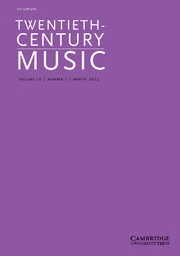
Twentieth-Century Music
Advancing Scholarship in Contemporary Music Studies.Twentieth-Century Music is a premier academic journal dedicated to the study and critique of music composed in the twentieth century. Published by CAMBRIDGE UNIVERSITY PRESS, this journal holds an esteemed position in the music discipline, reflecting its significance with a Q1 ranking in the Music category as of 2023. Covering a wide timeline from its convergence years (2004 to 2010, 2012 to 2024), it serves as a vital platform for scholars, practitioners, and students to explore innovative research, critical analyses, and interdisciplinary approaches to music of this dynamic era. With an ISSN of 1478-5722 and E-ISSN 1478-5730, the journal is committed to maintaining high scholarly standards and includes open access options to enhance visibility and accessibility of research findings. As part of the robust arts and humanities community, which ranks it at 62 out of 180 in Scopus, Twentieth-Century Music is essential reading for anyone looking to deepen their understanding of contemporary musical trends and their historical contexts.

Musica Oral del Sur
Celebrating the Rich Tapestry of Southern SoundscapesMusica Oral del Sur is a prominent academic journal published by the Junta Andalucía through the Centro Documentación Musical Andalucía. With its ISSN 1138-8579 and E-ISSN 2445-0391, this pioneering publication has championed open access since 1995, providing a vital platform for scholars dedicated to the exploration of traditional and contemporary oral music practices in Southern Spain and beyond. The journal is essential for researchers, professionals, and students interested in musicology, ethnomusicology, and cultural studies, promoting scholarly discourse through a rich assortment of articles, reviews, and field research. Set in the vibrant cultural landscape of Granada, the journal encourages the fusion of theoretical insights with practical implications, making significant contributions to the understanding of oral musical traditions. By fostering accessible academic dialogue, Musica Oral del Sur plays an invaluable role in preserving and highlighting the heritage of Southern musical expressions while addressing contemporary issues in the field.
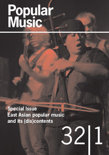
Popular Music
Connecting Music to Global NarrativesPopular Music, published by Cambridge University Press, is a leading academic journal that has been at the forefront of contemporary music studies since its inception in 1981. With its comprehensive scope encompassing a rich diversity of topics within the fields of Cultural Studies and Music, this journal holds a respectable Q2 ranking in both categories as of 2023, underscoring its significant impact on the scholarly discourse surrounding popular music. Researchers, professionals, and students alike will find invaluable insights within its pages as it explores the socio-cultural dynamics of music from various global perspectives. While it is not an open-access journal, the publication aims to foster critical dialogue and interdisciplinary scholarship. Based in the United Kingdom, Popular Music serves as a vital resource for those interested in the intersections of music, culture, and society, sustaining a vibrant academic community through rigorous peer-reviewed articles and reviews. Engage with the latest research and deepen your understanding of popular music's ever-evolving landscape.

Muzikoloski Zbornik
Unlocking the Secrets of Sound and TheoryMuzikoloski Zbornik is a prominent open-access journal in the field of musicology, published by the esteemed University of Ljubljana Press since 1965. Hailing from Slovenia, this journal has been dedicated to advancing the study of musical heritage, theory, and practice, serving as a vital platform for researchers, professionals, and students alike. With a notable Q2 category ranking in the field of music and a Scopus ranking of 109 out of 180 in Arts and Humanities, Muzikoloski Zbornik showcases high-quality research, fostering discourse and collaboration among scholars globally. The journal embraces a diverse range of topics, from ethnomusicology to music education, ensuring its relevance in an ever-evolving academic landscape. By providing unrestricted access to its content, it champions the dissemination of knowledge and supports the growth of the musicology discipline.

Musicology Today
Pioneering Insights in Contemporary Music StudiesMusicology Today, published by SCIENDO, is a pivotal journal in the field of musicology, presenting a platform for scholars, researchers, and practitioners to disseminate their findings and engage with current trends in music research. With its ISSN 1734-1663 and E-ISSN 2353-5733, the journal aims to provide a comprehensive overview of various aspects of music, including theory, history, and ethnomusicology, fostering a multidisciplinary dialogue among its contributors. Located in Warsaw, Mazovia, Poland, this journal is not only committed to high academic standards but also to promoting open access to knowledge, thereby enhancing accessibility for a global audience. As it continues to bolster its reputation in the academic community, Musicology Today plays an essential role in shaping the future of music scholarship and invites the engagement of seasoned researchers and emerging voices alike.

FOLK MUSIC JOURNAL
Connecting Communities Through Melodies and RhythmsFolk Music Journal, published by the English Folk Dance Song Society, is a prominent publication within the fields of Music and Visual Arts and Performing Arts. This journal, based in the United Kingdom at Cecil Sharp House, has been instrumental in advancing the study and appreciation of folk music, sharing invaluable research and insights from 2002 until its recent coverage concluded in 2020. Notably indexed with a Q3 rank in both the Music and Visual Arts categories for 2023, it stands as a significant resource for researchers, professionals, and students alike, contributing to a deeper understanding of folk music's cultural impact. Although it does not currently offer Open Access, the journal has fostered scholarly discourse, reflecting its vital role in the preservation and analysis of traditional musical forms.
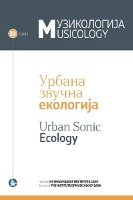
Muzikologija-Musicology
Bridging Cultures Through Academic MelodiesMuzikologija-Musicology, published by the esteemed Serbian Academy of Sciences and Arts, Institute of Musicology (SASA), serves as a pivotal platform for scholarly discourse in the field of musicology. With its ISSN 1450-9814 and E-ISSN 2406-0976, this open-access journal has been committed to disseminating high-quality research since 2002, making significant contributions to the understanding and analysis of music in diverse cultural contexts. Located in Belgrade, Serbia, the journal proudly holds a Q2 ranking in the Music category for 2023, reflecting its high-impact contributions as evidenced by its Scopus rank of #136/180 and a percentile of 24th. Covering a wide array of topics within music, from ethnomusicology to music theory and history, it invites contributions that push the boundaries of music research. By fostering an open-access model, Muzikologija-Musicology aims to ensure that its findings are accessible to a global audience, thereby enriching the discourse and fostering collaboration in the musicology community.
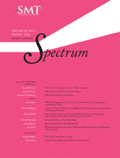
MUSIC THEORY SPECTRUM
Redefining Boundaries in Music Theory ResearchMUSIC THEORY SPECTRUM, published by Oxford University Press, serves as a premier journal in the field of music theory, recognized for its significant contributions and scholarship since its inception. With an ISSN of 0195-6167 and E-ISSN 1533-8339, this journal has established a distinguished position within the academic community, boasting an impressive Q1 status in the Music category for 2023 and ranking #17 out of 180 in Scopus for Arts and Humanities, Music, placing it within the 90th percentile. Despite its non-open access format, MUSIC THEORY SPECTRUM offers a wealth of research articles, reviews, and theoretical discussions aimed at both seasoned scholars and students alike. It spans from 1981 until present, fostering critical engagement and advancing understanding within the discipline. Researchers and music theorists will find this journal an invaluable resource for the latest insights and methodologies in music theory.